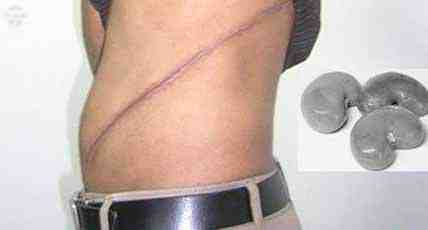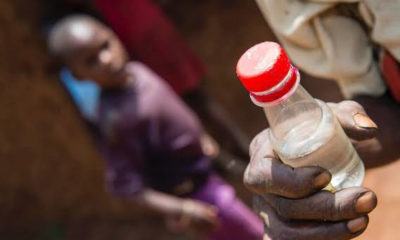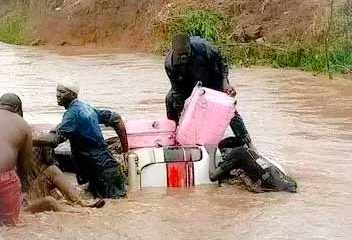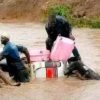Brian Mukalazi
Ugandans, don’t sell your kidneys!
My recent article titled, ‘Selling one’s kidney is now easier than finding a job’, caused quite a stir among the Ugandan citizenry. Since its publication in these pages, I have received multiple messages and phone calls from people, some known while others unknown to me, requesting all sorts of information regarding kidney harvesting.
Some of the most intriguing (and quite shocking) reactions came from those Ugandans who called and messaged me enquiring about my willingness to buy, or find a buyer for their kidneys. One of them, who identified herself as a university student, explained in great detail about how she doesn’t have any hopes of finding a job after completing her studies. “But with the $20,000 obtained from the sale of one of my kidneys, I can start a business”, so she said.
Another Ugandan, interestingly laboured to explain how he could easily mobilize people from vulnerable communities such as Boda Boda riders, to participate in the kidney selling trade. As a broker, he intimated that such a business would be a great deal, with abnormal profits, as there would be many willing sellers.
For starters, I’m not a kidney dealer, neither do I know anybody who participates in the trade. My ultimate goal of penning that article was to highlight how economic hardships currently faced by Ugandans, especially the young people, have pushed them to the limits, including selling their kidneys, all for survival.
However, the people’s reactions to the said article were a sad reminder of the economic state of our country. I truly condole with all those currently experiencing difficulties – financial, emotional or otherwise – and I pray for a better future ahead. But never in my mind, would I advocate for kidney selling, unless it is extremely necessary.
I am aware that we are probably facing the worst economic crisis in living memory. Far more jobs have been lost in the past 2 years, the economic downturn seems to have wiped away demand for certain types of work, and the jobs available have made income inequality worse than it would have been.
I am aware that in many households, happiness has slowly faded into memory. We have more unequal, less vibrant, less productive, poorer, and sicker people than before. And those with wealth have not done enough to protect those without health. As a result, the rich are getting richer and the poor are dying faster.
I am also aware that this prolonged economic stagnation is having an effect on individual aspirations and optimism about the future; health and mental health; family formation and stability; and the viability of communities. In fact, it may severely erode the life chances of many Ugandans.
The economic crisis has been further exacerbated by the persistent worldwide shortage of organs for transplantation: Demand for organs significantly outstrips supply. Unable to obtain organs at home, patients from rich countries are choosing to travel to poorer countries, like Uganda, where they lure desperate, uneducated individuals into selling their kidneys.
But with that being said, we don’t have to trade our kidneys for financial gains. We need to find ways of lifting ourselves out of this limbo by using safer and ethically acceptable means – human organs are not a commodity to be bought and sold at will.
I pray that the situation doesn’t get worse than it is in countries such as India and Afghanistan. In the western city of Herat, Afghanistan, the practice is so widespread that a nearby settlement has been bleakly nicknamed “one-kidney village”. The residents argue that they do it to make ends meet. From one family, five brothers sold a kidney each in the last four years, thinking it would save them from poverty.
Solutions
We need to urge our government to stop investing in ‘investors’ and start prioritizing local content. Policy responses should not be fragmented and there should be local efforts to boost the liquidity of small-scale businesses, including establishment of affordable and accessible lending programs.
Government must, firstly, prioritize human welfare and human capital. Secondly, because crises tend to accelerate pre-existing economic trends, the government responses that are effective often take that into account and plan long-term policy accordingly. And thirdly, the most effective planning for longer-term economic recovery usually starts early, often alongside acute crisis-relief efforts.
Our recovery will depend on bolstering human capital, which can be done by helping individuals to retain employment or acquire the skills they need to find new jobs. The initiated programs should not only offer new trainings, but they should also establish partnerships with educational institutions.
Further, there’s need to build and expand innovation ecosystems. Government can try to help rejuvenate growth by encouraging public and private sector innovation via a supportive ecosystem. Leaders could harness the power of open innovation efforts, such as increased investment in education and R&D, and open networks and publicly available data, to attract talent and promote resilient, innovation ecosystems.
Efforts could also be targeted towards programs that ease the transition to the new reality. Programs that ease labour dislocation, including job matching and reskilling, will be crucial for building the workforce of the future.
In the end, the question remains whether our policymakers have the will to take such evidence of the pain, despair and scars caused by the economic downturn into account. My greatest fear is that by the time any meaningful action is taken, many Ugandans would have lost their kidneys!
Comments




























